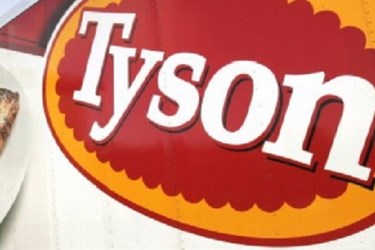Tyson Foods Will Eliminate Human Antibiotic Use In Chickens
By Melissa Lind, contributing writer

The number one poultry producer in the U.S. intends to eliminate the use of human antibiotics in chicken flocks by September of next year.
Springfield, AK-based Tyson Foods has stated human antibiotic use has already been discontinued in its broiler hatcheries and now requires a veterinarian prescription for the use of antibiotics at broiler farms. The company has reduced company-wide human antibiotic use by over 80 percent and plans to eliminate non-prescription use in all chicken by the end of September 2017.
Health and consumer experts are expressing approval Tyson’s decision as antibiotic-resistant bacteria continue to plague the food industry. Many other companies producing animal-based food products have moved in a similar direction as non-medical use of antibiotics of any type is a major contributor to antibiotic-resistant bacterial contamination events.
Tyson’s announcement comes after McDonald’s March announcement that the company plans to discontinue use of human antibiotic-raised chicken by next year. McDonald’s announcement follows a 2003 directive to suppliers with recommendations included in its “global antibiotics policy” that included “supplier guidance on the thoughtful use of antibiotics in all food animals.” Though Tyson is one of McDonald’s main suppliers, the company claims that the decision was not influenced by McDonald’s position. Another company in the poultry industry, Perdue farms, announced similar intentions, stating that antibiotics would no longer be used in hatcheries and that 95 percent of its chickens are free of medically important (human) antibiotics.
This is a subject that has recently seen public attention as in a March announcement, the White House has also addressed non-medical use of antibiotics in agricultural products, with the National Action Plan for Combating Antibiotic Resistant Bacteria. The plan includes eliminating “the use of medically-important antibiotics for growth promotion in food-producing animals” and requiring “veterinary oversight for [the] use of medically-important antibiotics in the feed or water of food-producing animals.” The program plans to address antibiotic resistance at all levels of the food supply chain.
